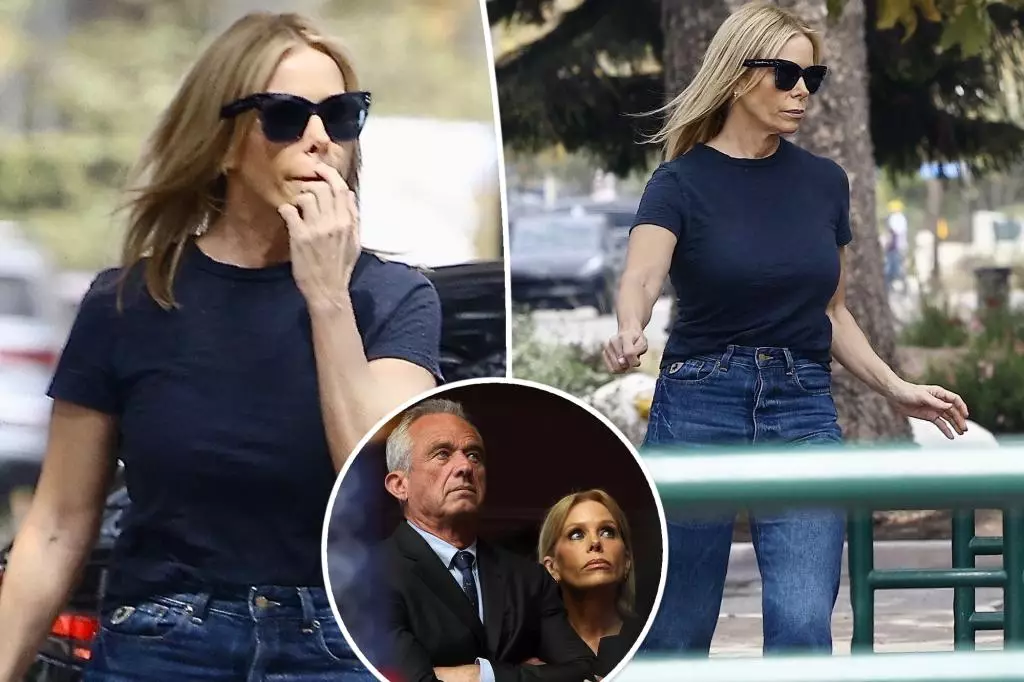Cheryl Hines and Robert F. Kennedy Jr. have recently found themselves thrust into the media spotlight, primarily due to allegations surrounding Kennedy’s infidelities. The couple was first spotted together in Malibu after a routine Starbucks visit, making headlines not just for their outing but also for the context surrounding it. Hines, who is known for her role in *Curb Your Enthusiasm*, appeared relaxed but notably absent from wearing her wedding ring—a detail that has not gone unnoticed by observers and gossip columns alike. This public appearance comes on the heels of a scandal involving Kennedy’s alleged affairs, including one with journalist Olivia Nuzzi, which raises questions about fidelity and the complications of high-profile relationships.
A Pattern of Infidelity
Kennedy’s history of romantic entanglements has been a consistent narrative throughout his life, embedded in the public’s perception of the Kennedy name. Following the implication of a potential affair with Nuzzi, additional claims emerged from at least three other women, all connected through Kennedy’s anti-vaccine advocacy group, Children’s Health Defense. The cascading effects of these revelations have not only impacted Hines personally but also challenged the very foundation of their marriage, leading to feelings of embarrassment and disillusionment. According to sources close to the couple, Hines’s embarrassment stems not from the affair itself, but from the way it came to light—raising profound questions about trust, image, and consciousness within their marriage.
The couple’s discord extends beyond infidelity; it encompasses the political landscape in which they both reside. After Kennedy’s endorsement of Donald Trump for the 2024 presidential race—a move that starkly contrasts with Hines’s longstanding Democratic values—the actress reportedly reevaluated her position in the relationship. Sources indicate that the political rift is as substantial as the personal fallout from the alleged affairs. For Hines, the endorsement may have been a bridge too far, creating a divide rooted in ideology rather than just personal betrayal.
As rumors escalate regarding Hines’s potential desire for a divorce, one cannot help but ponder the implications of such a decision. Though she entered the marriage aware of Kennedy’s notorious past, the combination of political and personal betrayals may have undermined her sense of agency and dignity. Hines, who has navigated the challenging waters of fame with resilience, now faces one of her most difficult moments, reconciling her personal beliefs with the realities of her marital situation. Would leaving Kennedy signify a reclamation of her identity, or would it be merely a response to public scrutiny?
The saga of Cheryl Hines and Robert F. Kennedy Jr. is a reflection of modern relationships, where romance intertwines with public personas and political ideologies. Their story is emblematic of the struggles many face when personal beliefs clash with the complexities of love. As the couple navigates this turbulent chapter, it remains to be seen how they will redefine their union—or if a new chapter lies ahead as they confront the realities of their intertwined lives. Perhaps in this instance, love alone may not be enough to bridge the chasms created by fidelity and public image.

